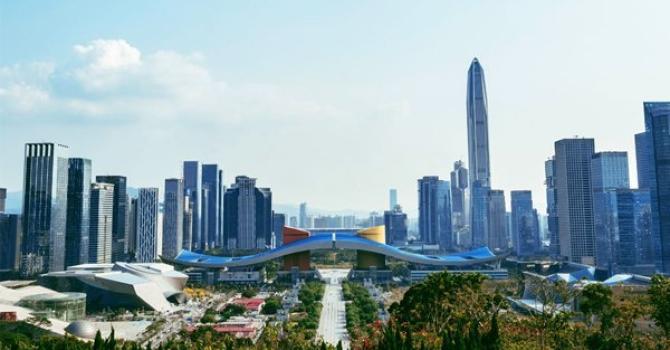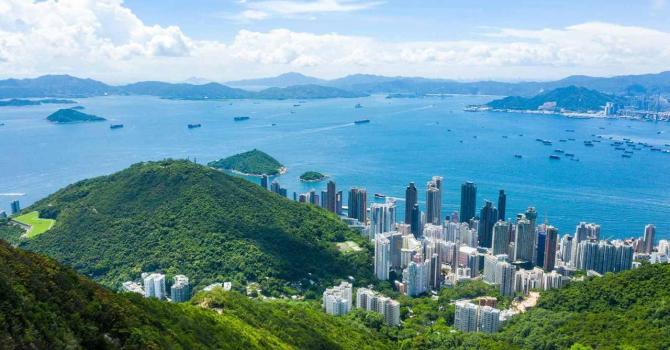SCMP: Progress in Hong Kong has to be built on loyalty to China
Christine Loh and Richard Cullen call on Hong Kong people to acknowledge the considerable success of ‘one country, two systems’, and to engage with Beijing on the basis of the shared goal of working towards the betterment of the nation
To put it bluntly, Hong Kong must first and foremost accept the People’s Republic of China for what it is today and work towards national betterment in good as well as difficult times. With loyalty to China made clear, the capacity to contribute, as well as to lobby for Hong Kong’s interests, is manifestly enhanced.
Before 1997, Hong Kong was an adjunct of the West through colonisation. Colonialism imparted certain benefits along with its ills. The benefits were not evenly distributed. China paid much of the price. Hong Kong collected notable advantages in the form of durable, respected institutions.
The British also wove a good story – their benevolent administration and the hardworking locals turned the tiny colony into an economic miracle. There was, however, a historical debt to be settled and, in 1984, Britain agreed to hand Hong Kong back to China in 1997.
China then was poor and backward. China’s policy of “one country, two systems” was the pragmatic solution to bridge the differences. The Basic Law, promulgated by China in 1990, spelled out how the Hong Kong system would function post-1997, including the maintenance of all of Hong Kong’s most treasured attributes – individual liberties, rule of law, free markets and a free media.
Elections were an aim included in the Basic Law, raising expectations that Hong Kong could develop a democratic system post-1997. The full achievement of universal suffrage became, for many, the bellwether for Hong Kong’s post-reunification success. Since this has yet to happen, it follows, for those taking this view, that Hong Kong has not progressed. The fact that “one country, two systems” works is often unfairly discounted.
It should also be admitted that the rejection of Beijing’s proposal in 2015 for the chief executive to be directly elected after candidates had been screened by a nominating body was a major missed opportunity, as it would have been a real step forward for Hong Kong.
The crux of “one country, two systems” is that China’s writ does not run directly in Hong Kong. Beijing can do hardly anything by mere fiat but must, in accordance with the Basic Law, work through local institutions, including independent courts.
This is not to say Beijing does not have influence – it does – but it is indirect, and it must work through local officials and address public opinion.
The two systems are so different that there were bound to be problems. Hong Kong’s politics have been dominated by resistance to Beijing. Universal suffrage in Hong Kong is seen as a necessary tool to counter China through electing the “opposition”.
Confrontational politics has done much to create policy logjams and little to shape the future for Hong Kong in China. What Hong Kong needs to do is engage with the nation as an integral part of the country and recast its narrative to one of national betterment.
Above all, Hong Kong must avoid trapping itself within a narrow framework tied to a view that the best times are over.
Hong Kong people can navigate these challenges by looking forward. It must not put down China’s long-standing concerns about territorial unity and national security as a cloak to exert increased control.
Hong Kong’s politics has long reflected the larger East-West divide between authoritarianism and liberal democracy. Today, this divide is intensifying. Washington now sees China as its paramount geopolitical rival: an opponent to be contained. Beijing’s concerns are legitimate.
Although Hong Kong has its problems, it remains a remarkably good place to live. It is well equipped to become an even better society. Neutral political space can be created, whether full universal suffrage is achieved or not in the medium term. Solving livelihood and other problems should be the focus. Restarting negotiations with Beijing on electoral reform is also possible with full acceptance of “one country”.
Beijing has asserted its power when Hong Kong tried to test the boundaries. But Hong Kong is well placed to stress how it can contribute to national modernisation and how its legal system complements the mainland system – rather than a tool used to confront it.
Frustrated Hongkongers must stop using colonial nostalgia as a political weapon
The experience of the past two decades has been genuinely valuable. A new constitutionality determining how a socialist system can permit and sustain a different subsystem has steadily emerged. The evolution of this constitutional relationship is an ongoing process, one whose success is of central importance to both Hong Kong and Beijing.
China’s formula for socio-economic success since the 1980s is not the one British Hong Kong and the West have been tutored to believe would work. But this is where Hong Kong can start to play a positive role in rewriting its own affirmative story. Hong Kong should intensify its commitment to understanding the mainland’s development experience and its political system. It is especially well placed to become the pre-eminent East-West decoder.
Hong Kong can retain its distinct identity within China. It can also develop its soft power. This can be done by becoming the exemplar in southern Chinese history, arts, culture and heritage, for which it is already a major shaper and trendsetter.
Hong Kong’s many commercial, professional and non-profit interactions with the mainland and other Asian counterparts form the foundation of the city’s vitality. China is a giant testing ground for everyone to try out new ideas, products and services. And, when they work, the opportunity to scale up is colossal.
The pursuit of excellence requires Hong Kong to continuously enhance its provision of services of all kinds, public and private, commercial, cultural and non-profit, because these are exactly what China needs for its next stage of socio-economic development.
Hong Kong should also fully exploit its special external affairs privileges provided by the Basic Law to promote its capabilities, including in developing economies. Cosmopolitanism will not be just about knowing the West in the future.
Despite differences, the “two systems” are part of “one country” with a shared history. Hong Kong and Beijing should each be constructively engaged in the pursuit of national betterment. They should remain open to frank discussion on points of difference.
Christine Loh is Chief Development Strategist and Adjunct Professor at the Hong Kong University of Science and Technology’s Institute of the Environment and Division of Environment and Sustainability. Richard Cullen is a visiting professor in the Faculty of Law at the University of Hong Kong. They are the authors of the just-published book, No Third Person: Rewriting The Hong Kong Story
Link to SCMP article: https://www.scmp.com/comment/insight-opinion/hong-kong/article/2166193/progress-hong-kong-has-be-built-loyalty-china



